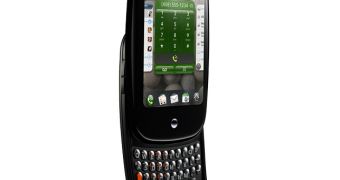We reported yesterday that Palm was planning to remarket 18.5 million of its common shares and that all the funds the company would receive, in excess of $49 million, from the deal would be used for the launch of Pre as well as for further development of the handset along with other devices. Palm's announcement is accompanied by an 8K SEC filing that shows a lot of risks the company warns about.
According to the mobile phone maker, the revenues from the sales of its legacy products are taking a downturn at the moment. At the same time, Palm Pre is the first mobile phone to feature the company's webOS, which makes it very important for the maker, but also increases the risks that could be faced in the near future.
Palm lists among these possible risks its ability to launch Pre along with related services in a successful and cost-effective manner, as well as its capability to provide enough working capital or other resources to support Pre in case it is not launched on a timely basis. In addition, the company also mentions the risk that the device or its OS might have defects, and that the same could happen with the handset's components or with the software solutions available with it.
As many of you might already know, Palm's Pre has been seen, ever since it first surfaced, as a strong competitor to iPhone, yet the company now warns that the device might not perform as expected in front of its rivals.
At the same time, it is known that Pre will initially be available on Sprint's airwaves exclusively, and there are also certain risks connected with the carrier's certification for the device, as well as with its ability to market the handset. In addition, Pre is also expected to become available with other cell phone operators as well, and Palm says that there are risks concerning their certifications too.
The “Risk Factors” section that Palm provided also speaks about the risks connected with the company's suppliers and with the demand the handset will have on the market, as well as the acceptance of the phone's platform by the carriers. Not to mention that the device's webOS should also appeal to third-party developers so that applications could be produced for it.
All in all, the company seems aware of the fact that there are a lot of factors it should take into consideration when making future projections, for some of them might affect its revenues and liquidities, as well as its reputation and competing ability, like intellectual property rights infringement claims would.
For what it's worth, Palm Pre is highly expected by a large number of users around the world, and mobile market analysts already predicted that it should soon prove to be successful. Hopefully, Palm will be able to put it on the market in time and the platform it runs under will also prove to be as feature packed as reported before.

 14 DAY TRIAL //
14 DAY TRIAL //